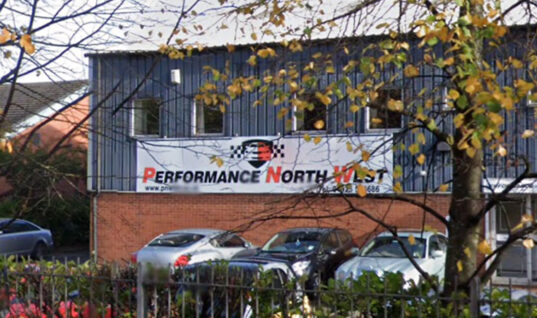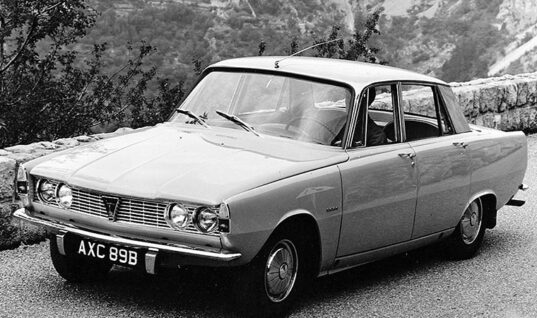Independent automotive trainer Graham Stoakes on how the transition to EVs will impact the independent garage sector
With the looming prospect of a ban on the sale of traditional petrol and diesel-engined vehicles by 2030, it’s understandable that current headlines are filled with doom and gloom from various sectors of society, including the motor trade. However, every argument has two sides, and it’s crucial to maintain a balanced perspective. If someone with an agenda shouts louder than anyone else, it’s likely that their viewpoint is the only thing you’ll hear and believe.
Let’s consider some of the arguments put forth by the automotive aftermarket regarding how the transition to electric vehicles will impact the independent garage sector, potentially putting many mechanics and technicians out of work.
Timescales
The government often cites a ban on the sale of new petrol and diesel vehicles by 2030. However, as stated in my opening remarks, this only applies to ‘traditional’ engine vehicles. Many are interpreting this as the cut-off for internal combustion engine vehicles, but that’s not entirely accurate. Hybrid vehicles, alternative fuels, and innovative engine designs will still be permitted.
Current targets indicate that all vehicles must have zero carbon emissions at the tailpipe by 2035, which is still over 12 years away. Furthermore, legislation is already being adjusted to include alternatives like synthetic fuel, provided they meet specific conditions. These targets are not set in stone and are likely to change.
Having a target gives us time to weigh our options, plan ahead, and address potential issues. In reality, 12 years is a fairly generous timeframe.
Mindset
Many mechanics argue that they joined the motor trade to repair cars, and an electric vehicle is still a car. Most systems and technologies remain relevant, even when the vehicle is electric. When it comes to propulsion systems, many technicians already possess more knowledge than they realise.
My current workload often involves delivering electric vehicle training and qualifications. Participants in these courses come from diverse backgrounds, and some may arrive with a negative attitude, especially if they were sent rather than attending voluntarily.
If participants have a solid understanding of fundamental automotive electrical concepts and enough experience with vehicle repairs, it’s safe to say they already possess the skills needed to maintain and repair electric vehicles. They simply need reassurance of their existing knowledge. It’s not starting from scratch; it’s building upon their current expertise.
Many don’t give themselves enough credit for their skills and experience. By the end of the course, most participants are enthusiastic about advancing to the next level or pursuing further training, regardless of their initial opinions about electric vehicles. It’s those who are resistant to training due to preconceived objections that are more challenging to convince.
Expense
A valid argument revolves around the cost of training and equipping a workshop to handle the maintenance and repair of electric vehicles. Financial situations vary, so it’s difficult to determine what is considered expensive or not.
However, regarding training, it’s crucial to view it as an investment rather than an expense. I’ve come across articles stating that training costs thousands of pounds, but most courses and qualifications are far more affordable. I understand that travel, accommodation and living expenses can be factors, but there are subsidised pathways to becoming trained in EV maintenance. High Voltage personal protective equipment (PPE) is essential and an unavoidable expense.
Yet, with proper use and maintenance, it can last a significant amount of time. Damaged or worn-out PPE should be replaced immediately. Most workshop equipment, including ramps, will be suitable for most of the work on electric vehicles and can be utilised until they need replacement, at which point EV-specific equipment could be considered.
In fact, much of the new equipment is already designed for EVs. Although insulated tools can provide additional protection against electrocution, they should mainly be used as precautions against short circuits. Many tools are now available with high voltage insulation, but a lot of the work can still be carried out using an insulated socket set and screwdrivers as a starting point.
Additional insulated tools can be added as the need arises. Good electrical HV test equipment is important and might be costly, but it can also be used on traditional internal combustion engine (ICE) vehicles. As a mobile EV trainer, I need to be able to teach, diagnose, dismantle, and repair an electric vehicle on the road with only what I can fit in the boot (and sometimes the back seat). It doesn’t require as much as you might think to get started.
Work
Reports suggest that many independent repair garages might go out of business due to manufacturers withholding information and the push for repairs to be carried out at franchised dealerships. Lack of information or data is also a concern with traditional vehicles, and protecting intellectual property justifies this to an extent.
Information for servicing and repairing electric vehicles is readily available, especially in the context of the second-hand market. As long as technicians are adequately trained in high voltage safety and follow recommended guidelines and precautions, there will likely be an increase in available work.
Not all of it will return to the manufacturer. The potential work volume is highlighted whenever figures regarding the shortage of trained technicians are mentioned. This should be viewed as an opportunity rather than a threat.
Having spent over 39 years in the motor trade, I can attest that it’s never too late to acquire new skills. Give it a try for yourself; you might discover that you enjoy it.
With four decades working in the motor industry, including 22 years in training and education, Graham Stoakes AAE MIMI MSET Cert-Ed is an independent automotive trainer working with ProMoto Europe. He’s a renowned author, with over ten books covering a range of vehicle technology topics from levels one to four.
To find out more about Graham and his automotive books, visit his website.
This article first appeared in issue two of Garage Wire Aftermarket magazine.







